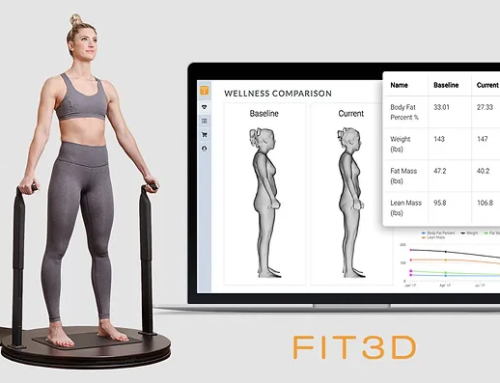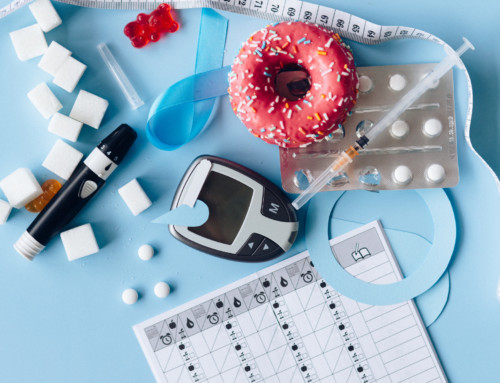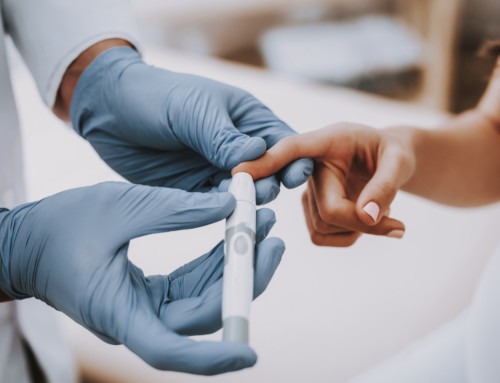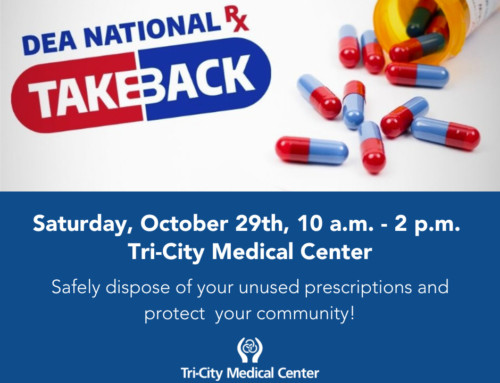“We have the first Center of Excellence in San Diego for the UroLift® system, a revolutionary approach to treating Benign Prostatic Hyperplasia, or BPH, symptoms in men,” said Aaron Boonjindasup, MD, MPH, co-founder of Urology San Diego and a board-certified urologist on staff at Tri-City Medical Center. “Our practice is at the forefront of urological technology, offering services and techniques not available at many other offices in North County.”
About BPH
The prostate is a small gland, about the size of a walnut, that is part of the male reproductive system and is located below the bladder and surrounds the urethra. BPH is a common condition in which the prostate becomes enlarged due to abnormal cell growth (hyperplasia) and blocks the flow of urine from the bladder through the urethra and out of the body. Lower urinary tract symptoms, such as a weak stream, urgency and daytime or nighttime frequency can be disruptive and may cause a decreased quality of life, depression and loss of productivity and sleep.
Men with BPH can determine the seriousness of their urinary symptoms, by completing the International Prostate Symptom Score (IPSS) questionnaire. They can then share their responses with a urologist who can perform additional evaluations, such as a urine flow test, or cystoscopy, to looking inside of the bladder and urethra, and then determine the best course of treatment. Prescription medications may cause side effects, such as dizziness, fatigue and sexual dysfunction and are often discontinued over time. Open surgery, such as Transurethral Resection of the Prostate (TURP), and minimally invasive procedures including thermotherapies that use heat and laser therapy called photoselective vaporization of the prostate (PVP) performed with the Greenlight laser, all remove prostate tissue.
About Urolift
Treatment with the UroLift System is an alternative solution that does not remove any tissue, but instead uses a minimally invasive surgical technique (MIST) to insert permanent, tiny implants that hold back the prostate, like tiebacks on a window curtain, to increase the opening of the urethra. The 10-minute procedure is done under light anesthesia on an out-patient basis and men can return home that same day. There is no need for a catheter, sexual function is preserved, and side effects are minimal.
BPH is not cancerous (benign) and does not increase the risk of getting prostate cancer; however, the symptoms for BPH and prostate cancer are similar.
BPH is not cancerous (benign) and does not increase the risk of getting prostate cancer; however, the symptoms for BPH and prostate cancer are similar. It is critical that men experiencing urinary symptoms see a urologist to determine the cause as one of the most common cancers among American men, other than skin cancer, is prostate cancer. The American Cancer Society estimates that about one man out of eight will be diagnosed during his lifetime. Prostate cancer is more likely to develop in men 65 years and older and in non-Hispanic Black men.
Treatments for Prostate Cancer
If prostate cancer is diagnosed, Tri-City provides patients with an integrated approach to cancer care, offering them personalized treatments that use innovative technology, as well as psychological support, educational programs and counseling throughout their journey.
“We are now using a very sensitive drug called Pylarify® to help identify prostate-specific membrane antigen (PMSA) positive lesions in men with prostate cancer when they undergo a PET scan,” said Dr. Boonjindasup. “This allows us to really hone in on whether or not the cancer has metastasized, or spread to other parts of the body, which has been difficult to determine in the past because we didn’t have the right tools to clearly see the full picture.”
According to the U.S. Food and Drug Administration (FDA), Pylarify is a radioactive diagnostic agent that is injected through an intravenous (IV) catheter and binds to PSMA, which is elevated in prostate cancer cells. Pylarify emits positrons, positively charged subatomic particles that can be imaged by a positron emission tomography (PET) scan to indicate the presence of PSMA-positive prostate cancer lesions in the tissues of the body.
“The more we know, the better we can treat the disease,” added Dr. Boonjindasup. “With new medications, men can stay progression free for longer periods of time so that they can live a healthy life without the symptoms of bone pain or urinary obstruction that are more common in advanced prostate cancer.”
Even though prostate cancer is a serious disease, most men do not die from it. The American Cancer Society reports that more than 3.1 million men in the United States who have been diagnosed with prostate cancer during their life, are still alive today.
June is National Men’s Health Month – during this time, men and their loved ones are encouraged to take care of their bodies by eating right, exercising and working to prevent disease.
“I understand how hard it can be for men to talk about their urological health,” said Dr. Boonjindasup. “If you are experiencing any lower urinary tract symptoms, talk to your doctor right away and get a referral to a urologist. There are so many treatment options now for various conditions and diseases that no man should have to suffer. Don’t let pride or fear get in the way of being able to spend time doing the things you enjoy with family and friends.”
Click here to learn more about the male urological services offered at Tri-City Medical Center or call 855-222-8262 to be referred to a urologist.
About Dr. Aaron Boonjindasup
 Dr. Aaron Boonjindasup is a Board Certified Urologist practicing in the North County, San Diego Area since 2016. Dr. Boonjindasup treats both men and women for their urologic needs and specializes in the treatment of kidney stone disease and Da Vinci robotic surgery for the treatment of benign and malignant disease in the upper and lower urinary tract and overactive bladder treatments. His professional goal is to provide high-quality Urologic care with a focus on the patient and the patient’s family goals in mind.
Dr. Aaron Boonjindasup is a Board Certified Urologist practicing in the North County, San Diego Area since 2016. Dr. Boonjindasup treats both men and women for their urologic needs and specializes in the treatment of kidney stone disease and Da Vinci robotic surgery for the treatment of benign and malignant disease in the upper and lower urinary tract and overactive bladder treatments. His professional goal is to provide high-quality Urologic care with a focus on the patient and the patient’s family goals in mind.
Dr. Boonjindasup is a New Orleans native but moved to Southern California to attend the University of California – Irvine where he obtained his undergraduate degree with a B.S. in Biology and B.A. in Psychology-Cognitive Science. Dr. Boonjindasup graduated from medical school at Tulane University Medical School in New Orleans and obtained a Masters in Public Health/Epidemiology in addition to his Medical Degree. He remained at Tulane for his General Surgery internship and Urology residency focusing on minimally invasive treatments of urologic conditions with several peer-reviewed publications.
Dr. Boonjindasup’s main practice is at Urology San Diego located in Oceanside and he is a staff physician and surgeon at Tri-City Medical Center, Scripps Memorial Hospital Encinitas, Palomar Medical Center and North Coast Surgery Center. Dr. Boonjindasup is Co-Chair of the Robotic steering committee at Tri-City Medical Center and Co-Chair of the Robotics committee at Scripps Memorial Hospital Encinitas.







